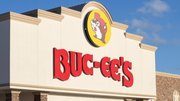Article
NRF12: Why retailers should heart Conscious Capitalism
Executives of Whole Foods and Container Store lay out the four elements of Conscious Capitalism.

January 18, 2012
NEW YORK — Love should be a major part of every retailer's business model, according to Kip Tindell, CEO of the Container Store, who addressed attendees Tuesday at the NRF's Big Show.
"It can really change the face of business around the world," said Tindell at a panel called "Conscious Capitalism."
Tindell and Walter Robb, co-CEO of Whole Foods Market, said although their businesses have been following the principles behind Conscious Capitalism for the past few decades, they have recently come together to give it a name and help other retailers enjoy similar successes.
The four elements of Conscious Capitalism are:
- Higher purpose
- Stakeholder orientation
- Conscious culture
- Conscious leadership
Higher purpose
The first part of Conscious Capitalism is pretty simple; it's about caring about more than just maximizing costs for shareholders. For example, Whole Foods' higher mission includes teaching the world to eat healthier. With this goal in mind, one Whole Foods store hosted a farmer's market in its parking lot. Robb admitted that from a strict business model, the idea may sound terrible since the farmers are selling the same types of products as the store. However, it was fun for customers and employees, and it built goodwill among the community and created buzz around the store.
"It's a way of thinking about business a little differently," Rob said.
Stakeholder orientation
Pleasing shareholders is a must for any successful business, but Robb and Tindell stressed that failure is inevitable if retailers don't define the other stakeholders. The needs of employees, customers, the community and even the environment must be met. In fact, Tindell argued that putting the needs of employees above customers and shareholders will be a win for all parties involved.
"Your employees will be feeling so full that they're spilling out and ready to share their excitement with customers," he said.
Conscious leadership
It may sound like a no-brainer, but the company's leaders must be passionate about its higher purpose and the needs of stakeholders.
"They are driven to serve the purpose of the business. They look for ways to create value to all the stakeholders," Robb said.
Conscious culture
A business' culture is imperative to its success and must be tangible to the shareholders, employees and customers. For example, the culture at Whole Foods may be a little chaotic, Robb said, but he's willing to trade that for the passion his employees possess. The company is known for doing out-of-the box things to please its customers. For example, one store put braille tags on its products to give a blind customer a better experience.
The Container Store set up "love note stations" on Valentine's Day, where customers could leave notes of praise for their favorite employees.
The key, Tindell said, is to develop a culture that works for the brand.
"You can't take someone else's culture; it has to be your own, and that's the purposes and values practiced over time," he said.
 ChatGPT
ChatGPT Grok
Grok Perplexity
Perplexity Claude
Claude




